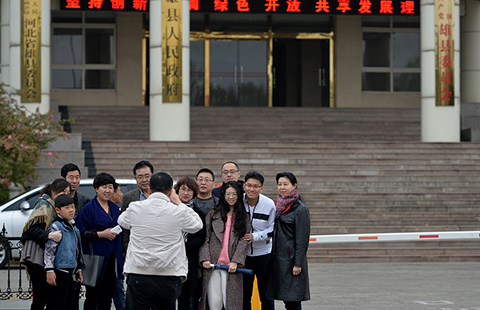New RMB loans drop in April
Tougher regulation causes lending to decrease to 792.9 billion yuan
Total new yuan loans and social financing extended by Chinese commercial lenders dropped in April, after the authorities introduced tougher regulation over non-traditional financing channels.
According to data released by the central bank on Friday, new yuan loans fell to 792.9 billion yuan ($129 billion) last month, from 1.06 trillion yuan in March.
Total social financing including all loans, bond issuance and stock sales fell to 1.75 trillion yuan in April, from 2.54 trillion yuan the previous month, but they were still higher than the market forecast of 1.5 trillion yuan.
Lian Ping, chief economist at Bank of Communications, said the declines were mainly because of slower growth in credit demands from companies, as the economic rebound remained weak.
Raymond Yung, PwC's financial services leader for China, added: "Less deposits among banks at the beginning of the quarter restrained lenders from extending more loans."
Yuan deposits among commercial lenders dropped by 100.1 billion yuan in April, according to the PBOC.
Yang Weixiao, a senior analyst at Lianxun Securities Co Ltd, said some seasonal factors also contributed to the decline in bank loans.
"It seems that the brakes put on the creation of wealth management products, trust loans and corporate bonds by the regulator have started to have a negative impact," said Yang.
Trust loans dived to 195.3 billion yuan last month, from a record high of 430.6 billion yuan in March, and corporate bond financing dropped to 190 billion yuan from March's 389.2 billion yuan.
In March, the China Banking Regulatory Commission capped the amount of wealth management products invested in "non-standard" assets including trust loans, and then in April the PBOC tightened controls on the interbank bond market.
But Qu Hongbin, HSBC's Hong Kong-based chief economist for China, said that market liquidity is still loose and will probably remain so for a while.
Growth of M2, the broad measure of money supply which covers cash in circulation and all deposits, increased by 0.4 percentage point to 16.1 percent by the end of April. The government has set an official target of 13 percent for the indicator.






















